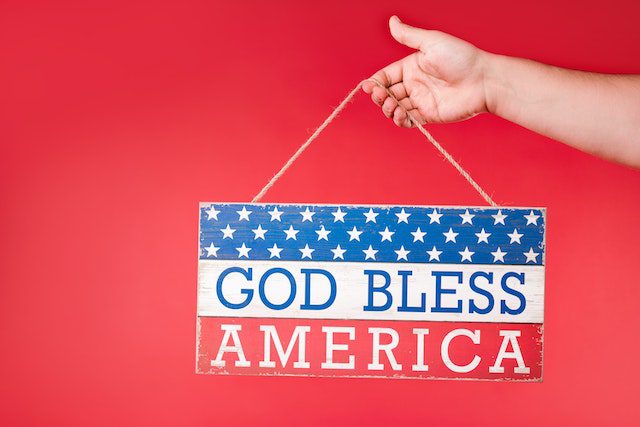Anger, lament, analysis, disruption, new connections—almost every week I’m amazed at the size of the movement of people leaving evangelicalism.
Social media accounts are exploding, not just because of the quippy content, but because of the thousands upon thousands of followers who are feeling affirmed by the posts exposing the reasons why evangelicalism appears more as a political party than something spiritual. We all get cynical about social media, but you can’t say that so many deconstruction accounts are getting so much sustained reaction for nothing. Just take a look at what’s going on with the hashtag exvangelical, coined by podcaster Blake Chastain.
Speaking of podcasts: some come, and some go; some are big, and many are small. But as a book publisher trying to resource this audience, I’m seeing plenty of active podcasts trying to address how we move forward in our rapidly changing religious world.
There are new faith communities forming, not just as single groups but in new collective, overarching structures, like the Post Evangelical Collective, or conferences like Evolving Faith or Content Warning. And they are not simply just about being inclusive, affirming, and more just. They are about redefining the practices that we typically find in spiritual community. And some communities are changing from within, and some have been here all along (hello, Black church).
Finally, as a publisher and literary agent in the book biz, I’m aware of quite a few books now out or coming soon. These books are more than just the trail-blazing memoirs some of us know and love, but a whole wave of books, some sharper than ever about what is happening. And trust me, the world can ride a whole wave of these books if publishers let it come.
Why Are Evangelicals Leaving the Church?
White as a category is now considered a minority. It means a certain culture is losing its dominance, perhaps its focus. As a result, there is an outspoken and powerful movement doing anything it can to avoid this inevitable change. What’s more, people who would identify as evangelical have been leading the way in creating chaos. They give voice to grievances, and electing pugilistic leaders starkly out of touch with the very values they purport.
The most cited and salient observation: so many of us who might identify as evangelical are voting for today’s far-right Republican politicians, with platforms sating the lust for culture wars rather than advancing concrete public policy with examined, democratic governance. This fact, perhaps along with, in particular, the rise of the voice of the queer community within church denominations, has led so many others to start and grow this deconstructing evangelicalism movement.
There are differing definitions of evangelicalism. I would offer Randall Balmer’s most recent iteration, that evangelicalism reads the Bible literally and selectively, adherents must be “born again” from sin, and the work of evangelizing the world must continue, which denotes evangelicalism’s stance of exclusivity and exceptionalism.
The point is this: evangelicalism by its fruits, or latent tendencies, has revealed itself to be more about social and cultural coherence and subsequent dominance (i.e., a Christian nation) than about being sincerely religious or spiritual. In this sense, it’s possible to conclude that leaving evangelicalism (a social construction) makes you a better Christian (a spiritual, ethical ideal). Even for those who have decided to leave Christianity altogether, there’s an argument to be made that they make better Christians. It’s quite common that those leaving evangelical churches find new communities where people are more loving, kind, and take better care of each other.
One thing that is irrefutable, which for years I wouldn’t accept: people are leaving and not coming back, nor will their children be coming back. One other religious publishing professional I know recently said, in a matter-of-fact voice, “America is becoming less religious.” And evangelicalism, defined here to be little more than a social and perhaps more a political construct, has entered an end game, as perhaps it inevitably should in the historical expanse of religion in North America.
So who is a better Christian?
For those who are leaving evangelicalism, it’s a time of giving voice to anger, perhaps detachment, and if we succeed, lament, but it’s also a soul-searching time to ask in a far more honest way, what really matters?
What does really matter? You can see glimpses of it in our Lake Drive Books titles that help to:
- see story, narrative, and poetry as giving voice to a healing power to reimagine faith
- acknowledge the beauty of our diversity (gender, ethnicity, sexuality, background, etc.)
- come to our relationships and identities in more authentic ways
- to acknowledge our inherent value (not sinfulness), and to find adventure and joy in the present, not in some idealized future heaven.
- discover answers in the questions and not in the answers themselves.
It’s just a sampling of what’s happening, but it’s more Christian, or more like a whole lot of other good approaches to life and love.
David Morris, Publisher
Photo by RODNAE Productions/Pexels


